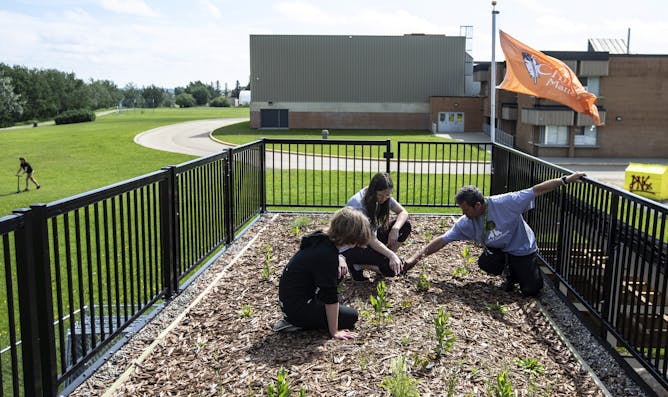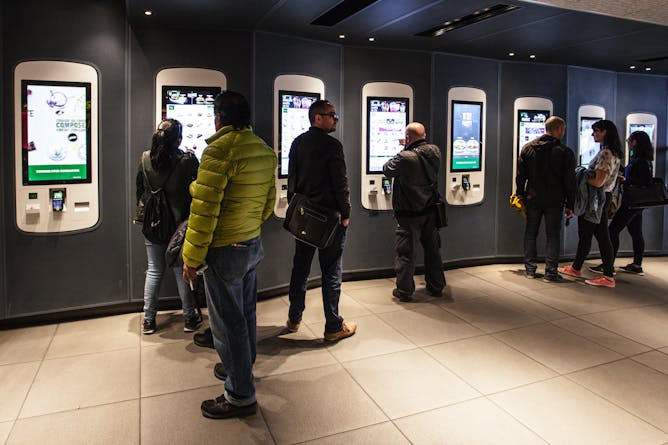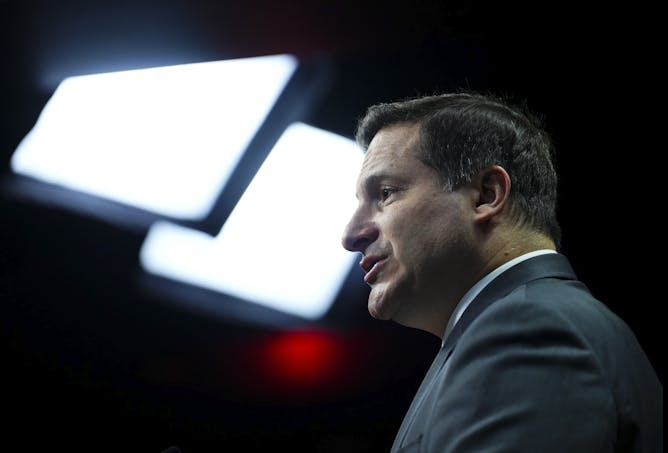|
If you’re a lifelong feminist who has been supporting pro-choice causes and organizations for decades, as I do, you were likely heartened to see Prime Minister Justin Trudeau’s recent defence of a woman’s right to choose. In the post-Roe v. Wade era of abortion crackdowns in the United States, and fears the trend is migrating north, Trudeau’s public showdown with an anti-abortionist earned international praise.
But did Trudeau make the right argument by raising the scenario of rape when he challenged the man’s misogynist insistence that women who “sleep around” should be forced to carry a pregnancy to term?
Today in The Conversation Canada, Lesley Ann Foster of Queen’s University argues that Trudeau’s response may suggest there are acceptable and unacceptable reasons for deciding to terminate a pregnancy. She writes that narrowing the focus to rape victims “neglects abortion as a human right and vital health care required for many diverse reasons by diverse people, including and excluding rape.”
Also today:
|

Prime Minister Justin Trudeau engages in an argument with an anti-abortionist at the University of Manitoba that garnered international attention. But was it the right response?
(Screen shot of viral video)
Lesley Ann Foster, Queen's University, Ontario
When Justin Trudeau raised the issue of rape victims during a recent argument with an anti-abortionist, he inadvertently suggested there are acceptable and unacceptable reasons to abort.
|

Students and a teacher seen on a rooftop garden at École Secondaire Lacombe Composite High School in Lacombe, Alta., in June 2022.
THE CANADIAN PRESS/Jason Franson
Gabrielle Edwards, University of British Columbia
Both at home and in schools, food can become a powerful tool to empower young people to take climate action, which can lead to reduced climate anxiety and increased feelings of hope for the future.
|

Public-facing automation, like self-service kiosks, reduce the chances we have to interact with other people.
(Shutterstock)
Blake Lee-Whiting, University of Toronto
Self-service technologies — like self-checkouts or government service kiosks — are decreasing interactions with other people. This may affect our politics and sense of community.
|

More and more consumers are engaging in showrooming, the practice of visiting brick-and-mortar retail stores to research a product before buying it elsewhere at a lower price.
(Shutterstock)
Heski Bar-Isaac, University of Toronto; Sandro Shelegia, Universitat Pompeu Fabra
Retail stores change the prices of their products based on the shopping habits of consumers. But consumers come in a variety of types, and not all of them influence prices equally.
|

Marco Mendicino, ministre fédéral de la Sécurité publique, a déclaré qu’un registre des agents étrangers protégerait les Canadiens et renforcerait les efforts déployés pour lutter contre l’ingérence étrangère.
La Presse canadienne/Sean Kilpatrick
Jordan Stanger-Ross, University of Victoria
Les pressions politiques s’intensifient sur le gouvernement fédéral pour qu’il crée un registre des agents étrangers. Mais les antécédents de discrimination raciale incitent à la prudence.
|
Arts
|
-
Tinashe Mushakavanhu, University of Oxford
In less than a year the newsletter has become important and influential, offering a new way of appreciating African photography.
|
|
Health
|
-
Mara Violato, University of Oxford; Jack Pollard, University of Oxford; Tessa Reardon, University of Oxford
Children with an anxiety disorder are likely to miss more school and get lower grades than those who do not.
|
|
Politics
|
-
Maurizio Valsania, Università di Torino
Americans have long nurtured mixed feelings about age and aged leaders. Yet during the country’s founding, a young America admired venerable old sages.
|
|